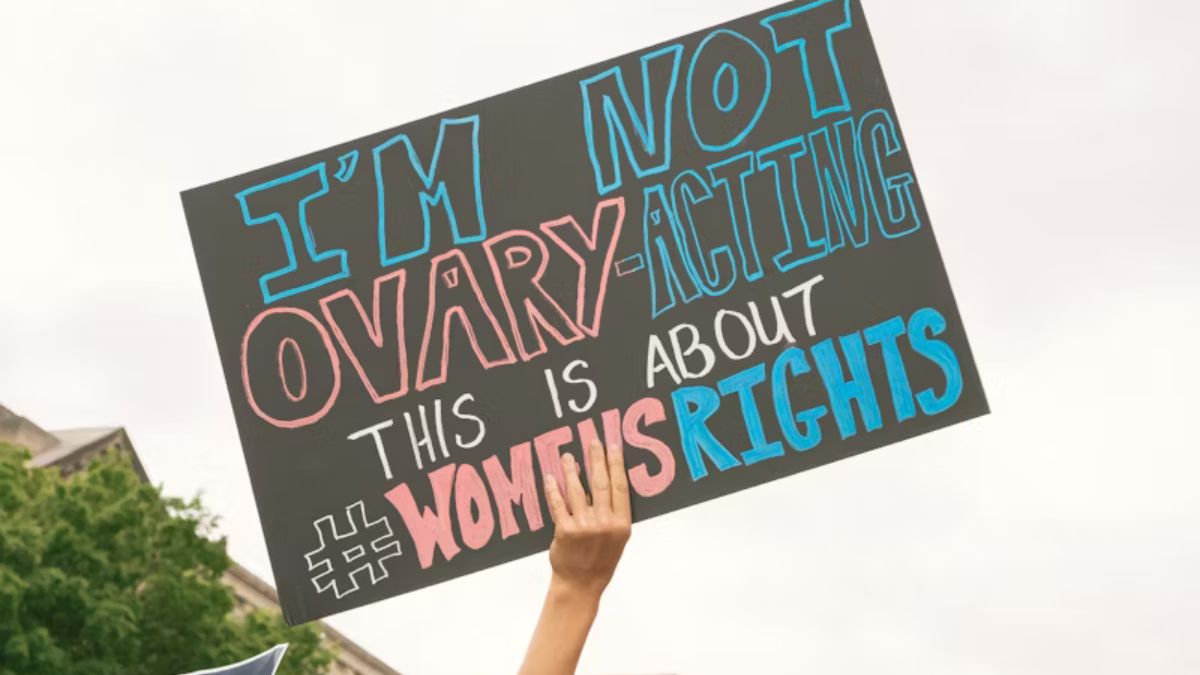A Global Look at Women’s Constitutional Rights

Women’s rights are a crucial part of human rights in the modern world. Similar to males, women are entitled to constitutional guarantees that provide justice, equality, and the chance to lead satisfying lives. A legal framework for gender equality and protection against discrimination has been established by the enshrinement of women’s rights in the constitutions of numerous nations worldwide. The particular rules and the degree of implementation of these rights, however, differ from one nation to the next. These rights cover a wide range of issues, such as the freedom from violence, employment, education, and equality.
The right to equality
The right to equality before the law is one of women’s most fundamental constitutional rights. The equality principle guarantees that men and women receive equal treatment under the law and have equal access to opportunities in all spheres of life. This covers equitable access to healthcare, work, education, and political engagement. Women are frequently shielded from discrimination on the basis of their gender, sex, or marital status by constitutional provisions. In order to eliminate structural and historical gender prejudices that have long held women at a disadvantage, such protections are essential. Equal protection laws in many nations guarantee that women are not subjected to discrimination in any public or private setting, including the job, the legal system, and even when it comes to accessing essential services like healthcare and education.
For instance, no state may refuse someone equal protection under the law, according to the Equal Protection Clause of the US Constitution. Many other nations’ constitutions contain similar clauses that serve as the foundation for challenges to legislation or policies that discriminate against women.
Voting rights and political engagement
Women’s suffrage is a crucial constitutional right, and the ability to vote is a fundamental component of democratic society. Women have historically been excluded from voting and political participation in many regions of the world. But great progress has been achieved in securing this right during the last century. In the fight for women’s equality, the 1920 ratification of the 19th Amendment to the US Constitution marked a significant victory by granting women the right to vote. Numerous other countries followed suit, and in the majority of democracies today, women’s voting rights and political participation are guaranteed by the constitution.
In addition to voting, women are entitled to run for political office and take part in local, national, and global decision-making. In addition to increasing political diversity, their participation in governance helps ensure that women’s concerns and interests are better represented in a country’s laws and policies.
Right to Education
Education is a vital human right, and constitutional provisions ensure that women have equal access to educational opportunities as men. Many countries’ constitutions require free and compulsory education for all children, including boys and girls. Education empowers women by equipping them with the information and skills required to effectively engage in society and the economy. Historically, women were frequently excluded from educational institutions or limited to specific sorts of education, usually in home settings.
However, women’s constitutional access to education has been critical in breaking down these barriers. Ensuring equitable access to education enables women to pursue occupations, make informed decisions, and actively participate in the development of their communities and nations.
Right to Work and Fair Employment
The right to work and the right to decent working conditions are critical components of women’s constitutional rights. This includes the right to equal pay for equal effort, to be free of workplace discrimination, and to work in a safe and equitable environment. Women have the fundamental freedom to pursue jobs in any sector, and governments are frequently compelled to develop laws that benefit women in the workplace.
For example, many countries require rules to ensure women have equal access to job opportunities as men, with comparable perks and salary. In addition to these safeguards, women’s rights to maternity leave and prohibitions against pregnancy-based discrimination are critical. These legal safeguards help to address the historical disadvantage that women have faced in balancing career aspirations with family responsibilities.
Reproductive rights
Reproductive rights are one of the most contentious issues concerning women’s rights worldwide, however many constitutions explicitly or implicitly safeguard women’s autonomy over their reproductive health. This includes access to contraception, the right to make pregnancy-related decisions, and, in many countries, safe and legal abortion. Women’s reproductive rights allow them to choose whether and when to have children, as well as other health-related decisions, without state interference.
For example, the famous Roe v. Wade decision (1973) interpreted the United States Constitution’s Right to Privacy to encompass a woman’s right to seek an abortion. Similarly, Canada and numerous European countries have passed laws to protect women’s reproductive rights. Reproductive rights are critical not just for individual freedom, but also for ensuring that women can plan their lives and fully contribute to the economy and society without being subjected to unwarranted health risks or social restraints.
Right to be protected from violence
Another important part of women’s constitutional safeguards is the right to be free of violence. Women are entitled to be free from domestic violence, sexual harassment, human trafficking, and other types of gender-based violence. Many nations’ constitutional frameworks require the state to take preventive steps and penalise criminals. In certain nations, legal systems have been developed to incorporate special rules designed to combat violence against women.
For example, in the United States, the abuse Against Women Act (VAWA) was enacted to provide legal remedies for women who have been subjected to domestic abuse and sexual assault. Globally, there is a growing recognition of the importance of combating violence against women and girls through international agreements such as the Convention on the Elimination of All Forms of Discrimination Against Women (CEDAW), which requires member states to take action to prevent gender-based violence.
Property Rights
Many societies have long denied women property rights. However, constitutional protections in numerous countries now protect women’s rights to own, inherit, and manage property. These safeguards are critical in allowing women to achieve economic independence and security. In addition to preserving property rights, some countries’ constitutions provide women access to financial resources, inheritance, and social aid. These rights help to create a more equal society by reducing poverty and increasing women’s economic empowerment.
Right to Privacy
The fundamental right to privacy protects women against unjustified intrusions into their personal and familial affairs. This right covers many elements of women’s lives, including reproductive choices, intimate relationships, and freedom from surveillance or pressure. For example, a woman’s health, sexual activity, and family life decisions should not be influenced by external factors. Privacy protections also cover topics such as sexual autonomy, which prevents women from being coerced into marriages or subjected to damaging cultural traditions.
Women’s constitutional rights are critical to achieving gender equality, social justice, and full involvement in all parts of society. These rights are inscribed in constitutions all around the world, giving women a solid foundation for challenging discrimination and demanding equality in the face of systemic inequalities. While great progress has been made, there are still many barriers to fully implementing and enforcing these rights. To achieve full gender equality, continued lobbying, legal reform, and societal change are required to ensure that women’s rights are acknowledged and protected worldwide.
These constitutional rights, which include the right to vote, education, employment, and protection from assault, are critical instruments for empowering women and establishing a more just and equal world for all.









